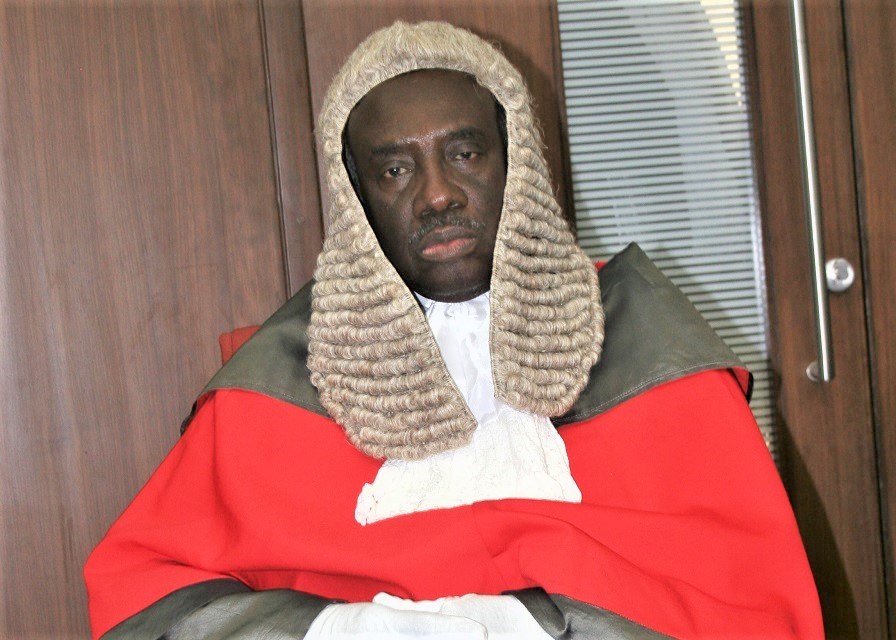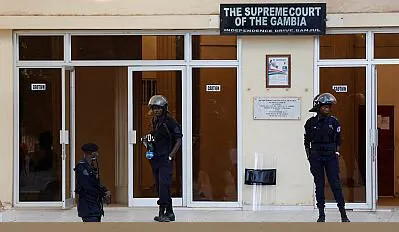
The opposition United Democratic Party’s election petition was thrown out by The Gambia Supreme Court for failing to comply with court rules.
The party earlier this month filed a petition challenging the December 4 presidential election results which went in favour of incumbent president Adama Barrow.
The UDP alleged that the election was rigged despite local and international election observers saying it was “free and fair.”
On Tuesday(December 28) the court led by Justice Hassan Jallow ruled that the petition lacked merit for failing to comply with Rule 11 of of the Elections Petition Rules.
Rule 11 which is titled “Time of Giving Notice” provides that “Notice of presentation of petition and the nature of the proposed security accompanied by a copy of the petition shall be served by the petitioner on the respondent within five days after the presentation, exclusively of the day of the prosecution.”
The court found and held that this provision of the elections petition rules is mandatory and failure to comply with it would result in the case being thrown out.
Chief Justice Hassan B. Jallow dismissed Lawyer Bory S. Touray’s argument that Rule 11 does not apply to petition as it regards the Office of the President.

Justice Jallow also dismissed Lawyer Touray’s argument that section 49 of the Constitution superseded Rule 11 of the Elections Petition Rules.
Justice Jallow stated that Rule 11 gives right to the respondent in election petition cases.
He explained that the Constitution is the foundation and framework law while much of the legislation is done by the Acts of the National Assembly, which include the Elections Act and Elections Petition Rules.
“The court fined and held that there is no conflict between Section 49 of the Constitution and Rule 11 of the Elections Petition Rule 11,” he said.
Chief Justice Jallow said it was the responsibility of the petitioners (UDP) to serve the Respondent (President Adama Barrow).
Rule 11 cited above, according to the Chief Justice, is mandatory which obliges the petitioners (UDP) to file notice to the President within five days.
“Has the Petitioner complied with the requirement of Rule 11?” Justice Jallow
asked, adding that “It is clear that the Petitioner has not served the notice of petition and security as required by Rule 11 to the 1st Respondent [President Adama Barrow],” Jallow answered.
He said UDP sought to rely on a letter obtained from the Registrar of Courts to argue that it was sufficient.

“This does not comply with what is required under Rule 11 of the [Elections Petition] Rules,” Jallow said.
Justice Jallow stressed that the notice as required by Rule 11 should be served within 5 days after filing the petition.
“It is clear that the Petitioners [UDP] have not filed the notice of petition and security,” he reiterated.
He added: “The Court fines and holds that the Petitioners have failed to comply with the requirements of Rule 11.”
He emphasized Rule 11 is mandatory and failure to comply with the provisions would render the petition “fatal” as he relied on several decided cases from both within the jurisdiction and beyond.
“This single obligation [referring to Rule 11] must be adhered to,” Jallow said, adding the rationale of Rule 11 is to give the Respondent the chance to know about the petition and know what is at stake in order to prepare his response.
“Compliance to Rule 11 is mandatory and non-compliance is fatal,” Jallow said.
He maintained that respect for timeliness set for election petition is mandatory and failure to observe them is failure. The court found and held that “Rule 11 is mandatory and non-compliance is fatal.”
The rule states that a petitioner must provide a notice of the presentation of a petition and must be served by the petitioner on the respondent within five days after the presentation.
UDP was found to have violated the rule and therefore there was no basis for the court to proceed with the case.
The court ruled that the petition lacked merit and ordered the party to pay president-elect Adama Barrow D100,000 in legal fees.
Meanwhile the party has responded to this landmark judgment.
In a statement the UDP said: “United Democratic Party has never left anything wrong in this country to go unchallenged. We have directed the jurisprudence of this country, we’ve directed how the constitution of this country should work.
“We have not lost anything because the petition was dismissed based on merit but a mere technicality. We should be proud of ourselves for what we have done and will continue to do for our country.”
Reporting by Adama Makasuba










Recent Comments